Description
Cystran 2.5 mg contains a medicine called Oxybutynin hydrochloride, categorized under the class of drugs known as anticholinergics. These drugs work by relaxing the bladder muscles and stopping sudden muscle contraction. This helps control the release of urine. In adults, Oxybutynin treats frequent and severe urinary urgency or loss of control in passing urine caused by damage to the nervous system.
Product Description
Cystran is contraindicated in patients with urinary retention, gastric retention, and other severe decreased gastrointestinal conditions, uncontrolled narrow-angle glaucoma, and in patients at risk of these conditions. It should not be used in diabetes, osteoporosis, or congestive heart failure patients. If unsure, please talk to your doctor before taking Cystran tablets. Talk to your doctor before taking Oxybutynin if you are/have:
— 65 years of age and older
— Kidney or liver impairment
— Overactive thyroid gland
— Heart disease
— High blood pressure
— Enlarged prostate gland
— Gastrointestinal disorders
— Irregular heartbeat
— Heartburn or indigestion caused by a hiatus hernia
Oxybutynin must be cautiously used in elderly patients due to the risk of side effects that affect cognitive function and the ability to think and memorize.
Talk to your doctor if you have symptoms such as agitation, hallucinations, confusion, and sleep disturbance.
The medicine is not recommended for use in children below five years.
If you are unsure if any of the above applies to you, speak to your doctor before taking Cystran tablets. Tell your doctor if you are taking any other medicine. This includes medicines that you get with or without a prescription.
Side Effects
Like all medicines, Cystran 2.5 mg can cause side effects, although not everybody who takes Cystran gets them. Stop the treatment and see your doctor if you have an allergic reaction. The signs may include swallowing or breathing problems and your lips, tongue, or throat swelling. Talk to your doctor if you suffer any blurred vision, vision problems, or have pain in the eye, as this could indicate glaucoma. Common side effects include nausea, dry mouth, facial flushing, dry skin, decreased sweating, headache, tiredness, dizziness, constipation, indigestion, diarrhoea, urinary retention, confusion, and being sick.
How to Use
Always take Cystran 2.5 mg exactly as your doctor has told you. Check with your doctor if you are not sure.
For adults, an initial dose of 2.5 mg thrice daily is recommended. Your doctor may decide to increase the maximum dose to 5 mg four times daily.
For elderly patients, an initial dose of 2.5 mg twice daily is recommended. Your doctor may increase your dose to 5 mg four times daily.
For children (over five years), an initial dose of 2.5 mg twice daily is recommended. Doctors may increase the dose to 5mg two or three times daily.
If you are giving to your child to prevent bedwetting, give the last dose just before bedtime. Swallow the tablet with a glass full of water. Please do not change your dosing regimen without discussing it with your doctor.


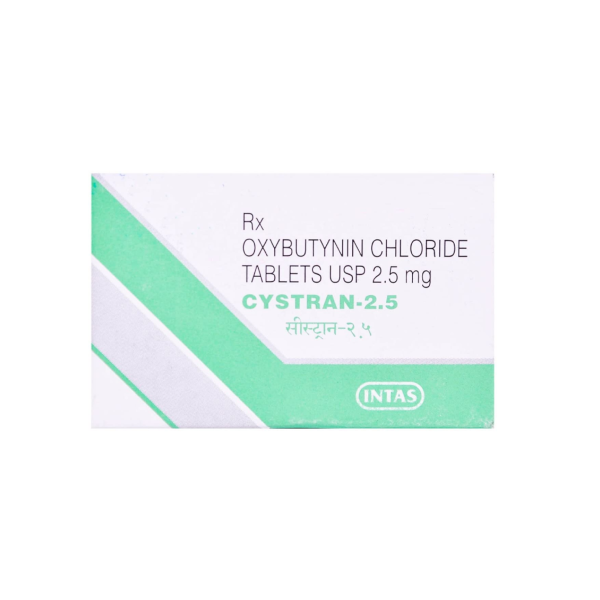
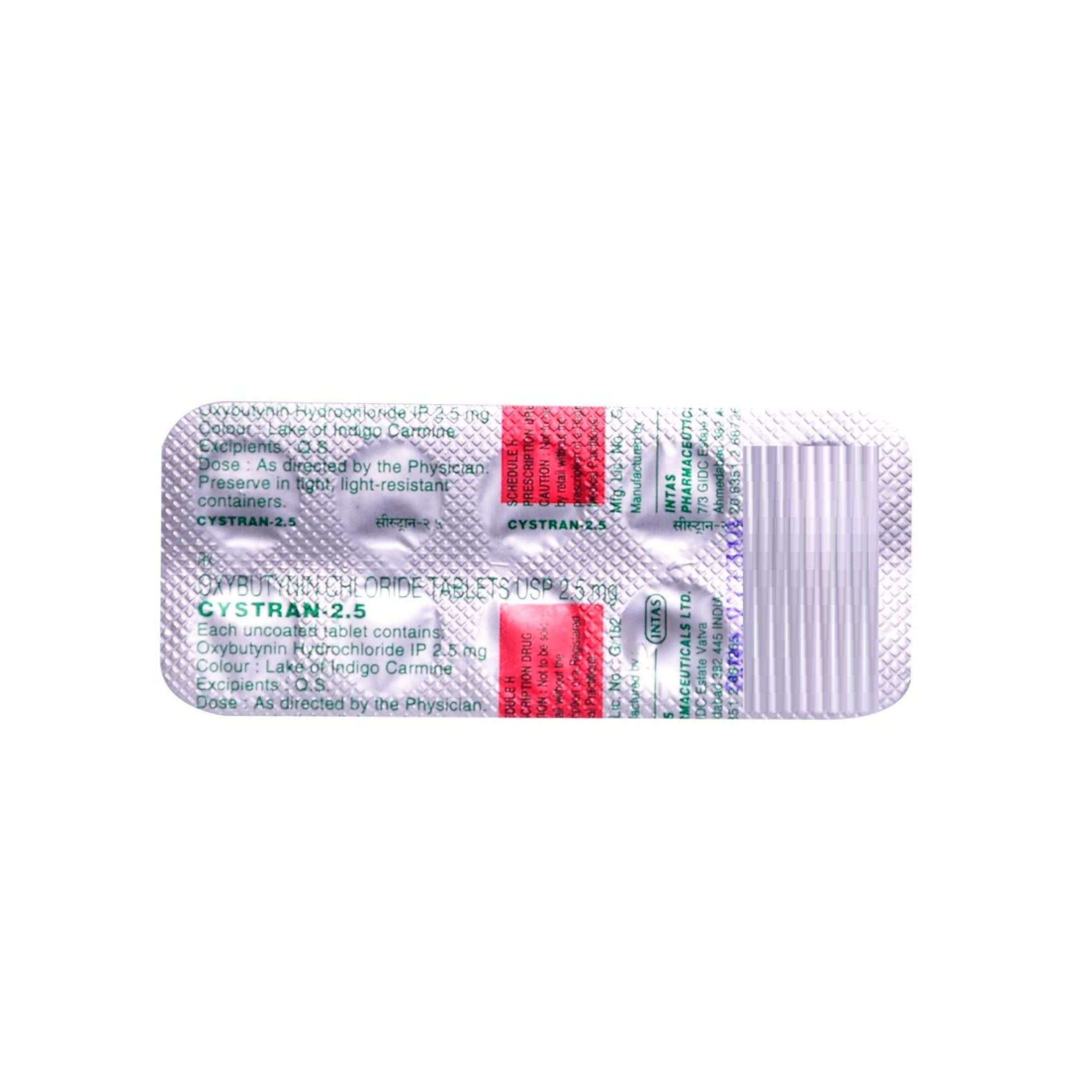
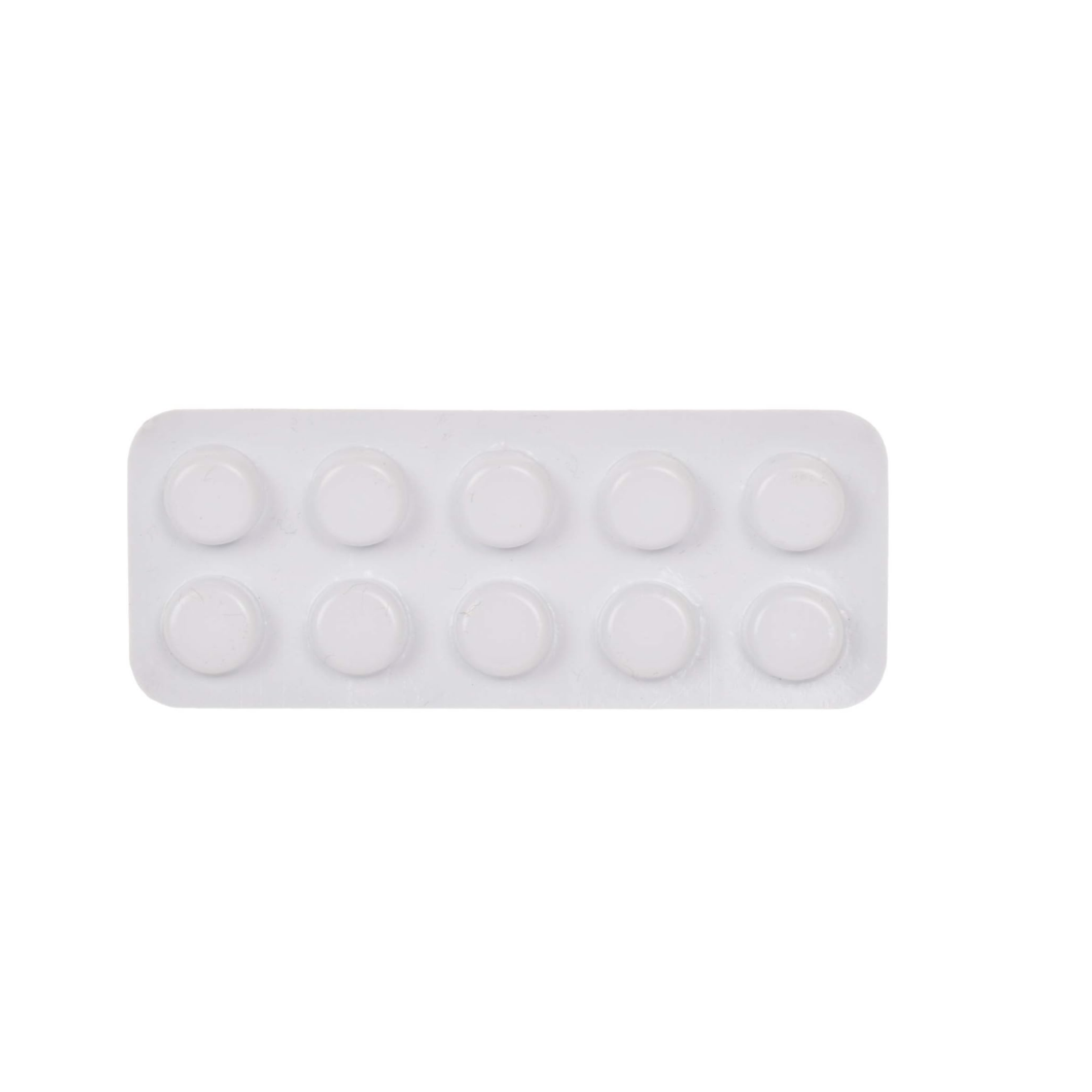
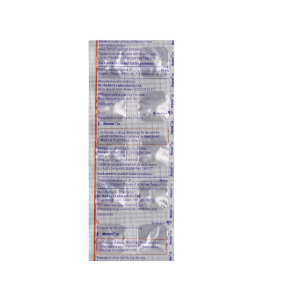

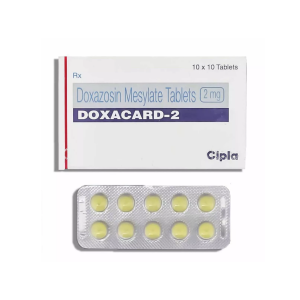
1 review for Cystran 2.5mg Tablet
There are no reviews yet.